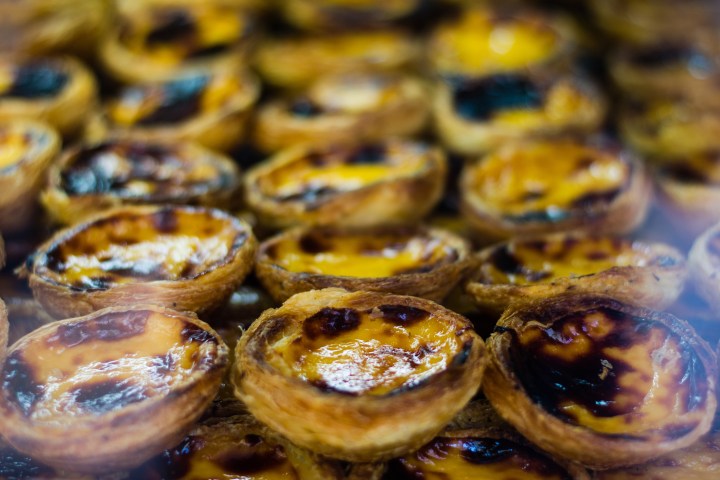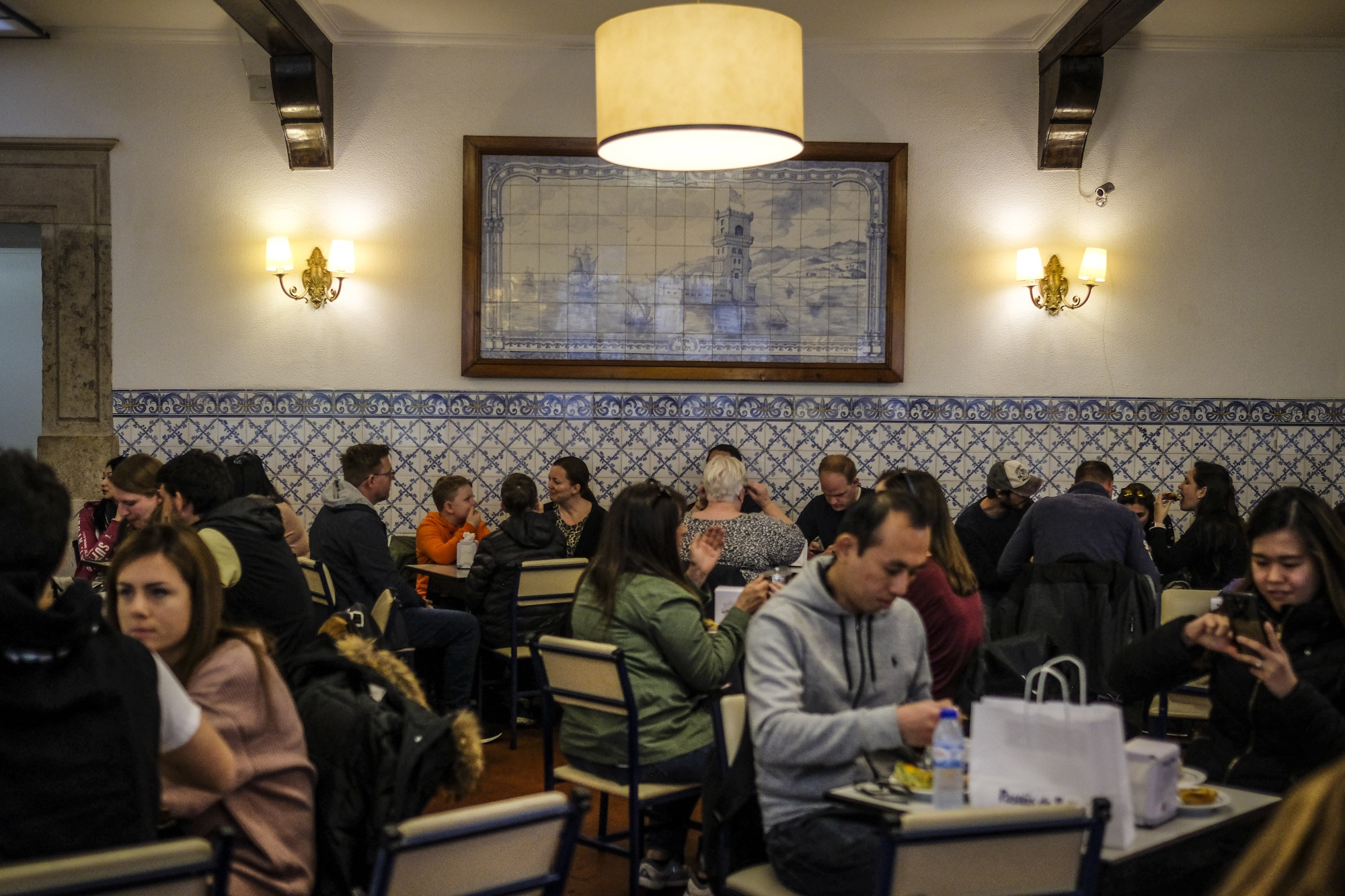BLOOMBERG
The Unlikely Rise of the Pastel de Nata, and why it’s Suddenly Everywhere

An unlikely dessert is on its way to becoming as ubiquitous as the croissant.
Not long ago an authentic pastel de nata (it’s the singular of pastéis) – the diminutive egg-custard tart with a crispy crust – required a trip to Portugal. But now they’re popping up in supermarkets, coffee shops and bakeries from Manhattan to Singapore. The pastry even earned its own episode on the Great British Bake Off, the global hit that conquered the world with bunting and scones.
The pastel de nata, which just means cream pastry in Portuguese, has similarly become an international hit, centuries after it was said to have been invented in a Belem monastery by monks. In Portugal, the simple treat often costs about a euro ($1.14) at the more famous shops, but they fetch up to 3 pounds ($4) in trendy London cafes. One grocer, Lidl, boasted of selling 2,000 nata an hour in the UK in 2018, competing with doughnuts for popularity.
Less than a decade ago, pastéis de nata – the plural – were languishing in obscurity. Sure, they flourished in pockets of the Portuguese diaspora in places like Newark, New Jersey. Mendes discovered them growing up in Danbury, Connecticut, which has a significant Portuguese community. His mom would bring them home after church from a nearby Portuguese bakery. But as recently as 2012, Portugal’s then-economy minister lamented that they weren’t an internationally known export.
It’s unclear what exactly sparked the boom, but the pastry ticks a few boxes. Culturally, Portugal is a must-try on an international travellers’ bucket list, and budget Lisbon rents are creating a tech hub for millennials priced out of London and New York. The famous, blue-and-white-tiled Pasteis de Belem was made for Instagram bragging, despite being founded in 1837.
The treat also fits into a shift toward more-casual, high-quality food – especially items you can grab and go. Add to that the trend for fad desserts. Looking back, glam cupcakes from Magnolia Bakery or pies from Four & Twenty Blackbirds seem so quaint before people started queuing for the cronut and the Freakshake stormed Instagram. (Incidentally, Mendes and cronut father Dominique Ansel promoted a crossover-egg tart during a limited release two summers ago.)

Inside the Pasteis de Belem cafe. Photo: Patricia de Melo Monteira/ Bloomberg
Perhaps unsurprisingly, the nata’s rise is fuelled in part by promotion from the government, which sponsors events like the 2018 Nata Festival in London and funds local businesses. Exports of Portuguese specialties, meat and livestock to other European countries topped 1 billion euros in 2016, more than doubling in seven years. In the last three years, the Portuguese government has spent €50-million per year overseas promoting the country and its products.
But there’s also a more unlikely source of promotion: a tiny business called Nata Pura that sought to do for natas what Dunkin Donuts did for doughnuts. Started in 2013, the company has rapidly expanded, helped by a six-figure investment from Portugal Ventures, an investment firm backed by government agencies.
Founder Mabilio de Albuquerque took a page from international brands like McDonald’s and adapted the pastries to local tastes: matcha green tea and passion fruit for Japan; Brie, Camembert and blue cheese for Paris. He knew his Portuguese friends would be furious.
The original nata made with eggs, flour, milk and butter was sold for centuries without an alteration, and its recipe was feverishly guarded. But de Albuquerque wasn’t trying to please a Portuguese audience. He was creating a brand of nata he could export to the world with his startup Nata Pura from Asia to Europe, to Latin America and eventually the US. DM



 Become an Insider
Become an Insider